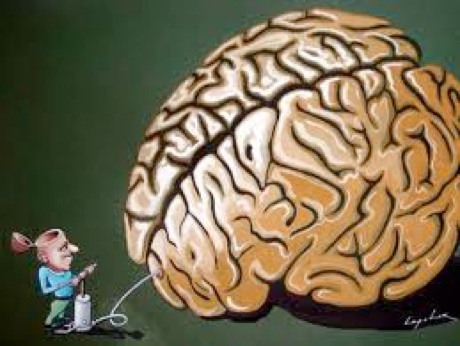
Last Saturday Anne McIlroy wrote a piece for the Globe and Mail entitled ‘A workout program for your brian.’ The basic premise of the piece is that we can exercise the brain and through that exercise the brain becomes ‘smarter’! This is interesting because it flies in the face of our accepted assumptions about intelligence – you are either smart or you are not (sorry). Intelligences are believed to be a part of who you are in much the same way that personality defines how you behave. Intelligence does not change over time. Moods change, abilities change, skills change – but intelligence you either have or you don’t.
The research conducted by Sylvain Moreno questions the assumptions that intelligence is defined. (Take a quick look at this video by Dr. Moreno where he outlines his research program.) In his research, teaching kids about music activates the part of the brain that is involved in language skill and alters how a child performs on an IQ test. There is no doubt that this is fascinating work but I question the conclusions that Ms McIlroy has drawn in her review of this work.
There is a growing body of work on a phenomenon called priming. This is where an idea is put into someone’s mind without overt conscious awareness. For example, research participants have been found to walk slowly after having been exposed to words that are often associated with elderly people. People have been found to report hunger when indirectly primed to think about food. There is also an established line of research on memory that indicates that people are able to recall material that falls on neurological pathways that have recently been activated – even for other purposes. So really, it could be that activating the parts of the brain that are required for an IQ test allows the brain to prime or activate the pathways required for the test. By implication, this ‘advantage’ would diminish over time as the exercise wears off – if you don’t use it you loose it!
Despite my lack of clarity on what these findings really mean, there are some interesting organizational applications. Can we get people ready to perform well on a new task by preparing them with related activities? Is it fair to give someone a new task and expect superior performance? Should we giving them some time to get their pathways charged before we expect genius?

No Comments so far ↓
Like gas stations in rural Texas after 10 pm, comments are closed.